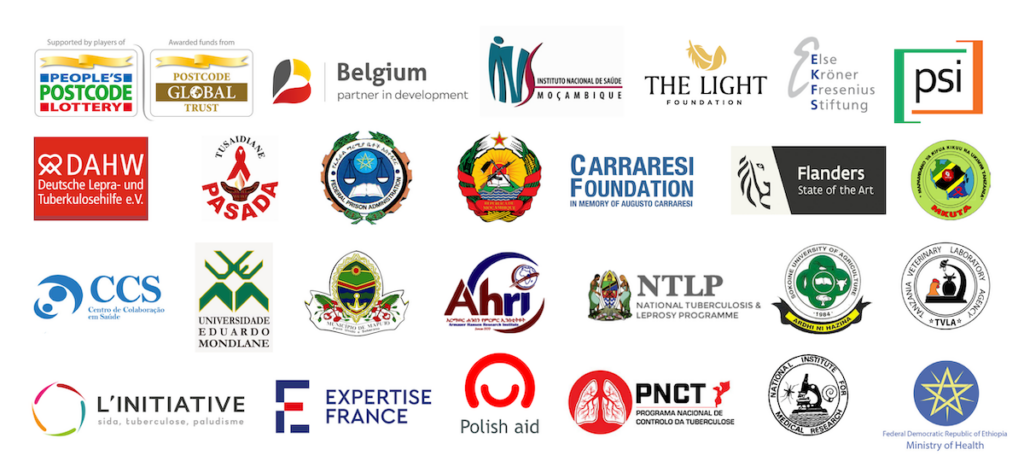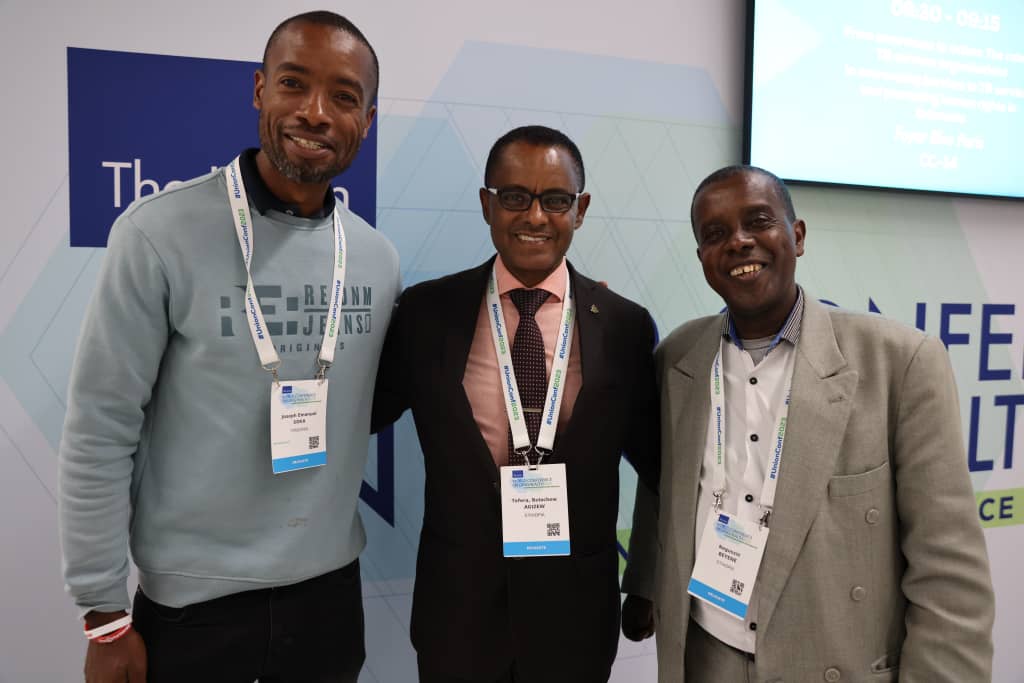As a leader in the field of tuberculosis (TB) detection using rats, APOPO recently participated in the UNION Tuberculosis Conference in Paris from November 14 to 18, 2023. The event, the first international gathering of its kind post-COVID-19, provided an important platform for sharing advancements in tuberculosis detection and research. The theme for this year’s UNION conference – Transforming Evidence Into Practice – emphasized the importance of applying research findings to practical and actionable solutions in the fight against tuberculosis.
Leadership and Expertise from APOPO
The APOPO team was headed by Dr. Tefera Agizew, the Head of the TB Department. Joining him were colleagues Dr. Negussie Beyene from Ethiopia and Dr. Joseph Soka from Tanzania, both country program managers, showcasing their collective expertise in the field of tuberculosis research.
Aligning with the conference’s theme, “Transforming Evidence into Practice,” APOPO’s presentations focused on applying research findings to practical TB detection methods. This approach is crucial in making strides against TB, particularly in resource-limited settings such as those where APOPO operates its TB programs.
Breakthroughs in TB Detection Using Trained Rats
Tuberculosis stands as a major global threat, ranking as the most lethal infectious disease after COVID-19. In 2022, the WHO estimated 10.6 million new cases of tuberculosis, resulting in around 1.3 million fatalities. Alarmingly, in many sub-Saharan African nations, only about half of individuals with active tuberculosis receive a proper diagnosis, underscoring the urgent need for improved detection and healthcare infrastructure in these regions. Since 2007, APOPO has researched TB detection rats as a “failsafe” – examining clinic-tested human sputum samples delivered from partner clinics in Tanzania, Mozambique and Ethiopia. Any rat-suspect samples are confirmed using internationally recognized methods and if TB is present, APOPO notifies the clinic. Our research indicates that APOPO is improving clinic detection rates by 40%.
APOPO’s contribution included sharing the capabilities of African giant pouched rats (Cricetomys ansorgei), known affectionately as HeroRATs, in detecting TB. Dr. Agizew highlighted that the rats are particularly effective in identifying TB in children, a group traditionally challenging to diagnose, even with low germ loads of the disease.
Children, often presenting less pronounced symptoms and lower bacterial loads in sputum samples, pose a significant challenge in TB detection using conventional diagnostic methods. The HeroRATs, with their exceptional olfactory capabilities, have demonstrated a higher sensitivity in sniffing out TB bacteria in pediatric samples. This ability to detect TB at lower bacterial concentrations is not just a scientific curiosity but a potential game-changer in early diagnosis and treatment, especially crucial in young patients where early intervention can prevent severe disease progression and community spread.
Engaging with the Global TB Community
The response at the UNION conference was positive, with APOPO’s findings generating interest among attendees. The press conference and subsequent discussions allowed for a deeper exploration of the impact of these findings on global tuberculosis diagnosis and treatment strategies.
An insightful panel discussion on TB and vulnerable populations took place at Stand France BOOTH C6343. The event addressed critical issues in TB management. Negussie Beyene from APOPO Ethiopia discussed strategies for reaching urban poor populations. The Q&A session, moderated by Prof. Emilio Valverde, (former APOPO Program Manager for Mozambique) current Country Director of Fundação Aurum in Mozambique, delved into healthcare needs, access strategies, mental health services, and garnering support from health authorities. The exploration of synergies among interventions aimed for a greater impact on underserved populations.
Meetings with current and potential funders, such as Expertise France, ANRS, and Unitaid from France, and RIT/ATA from Japan, underscored the importance of collaboration in advancing TB research. APOPO’s commitment to ongoing participation in UNION conferences and further research in TB second line screening using trained rats reflects our continued dedication to combating TB.

APOPO’s Continued Fight Against Tuberculosis
APOPO’s participation in the UNION Tuberculosis Conference reflects our ongoing commitment to combating TB through innovative research and collaboration. Through our work APOPO continues to contribute to global efforts in TB detection, aiming to improve diagnostic methods and accessibility in the years ahead.
APOPO’s TB Research Programs are made possible by our generous donors and partners:


